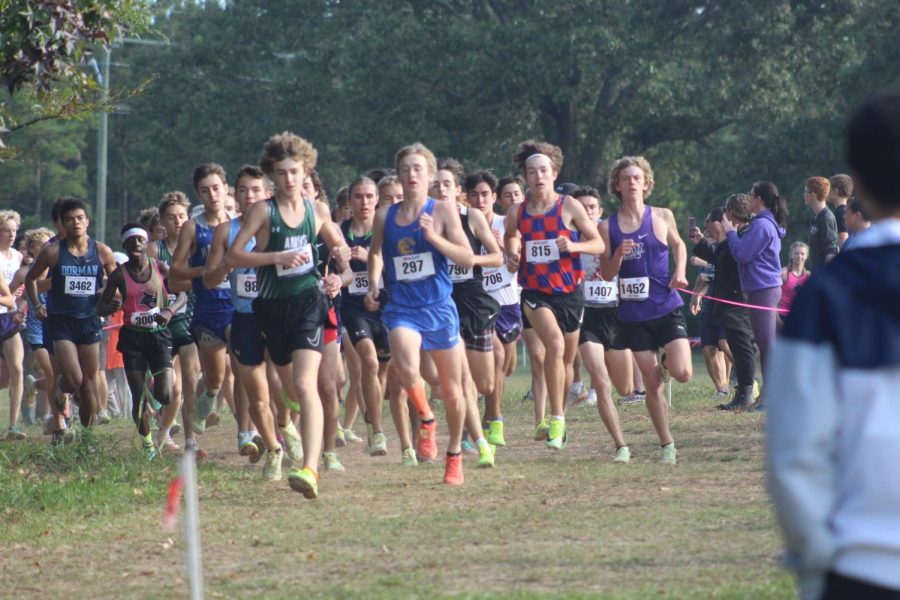Physical Burnout: Effects On Young Athletes
Physical and mental exhaustion affects many in this day and age, especially juvenile athletes
After a long summer of intense training, cross-country runners across the state get ready for the season ahead.
October 17, 2022
Athletes young and old have all endured the challenges of burning out in their sport. This typically occurs when athletes train to their maximum capacity and start to show declining performances. Overtraining and stress are commonly associated with athletes who want to pursue professional-level competition for their sport. Burnout isn’t only physical; it also mentally affects athletes with mood changes, anxiety and other factors contributing to depression.
From a young age, athletes often are encouraged and taught to push themselves further and further in order to succeed in the sport. As researchers and sports analysts look back at the change of athletic intensity at younger ages, there is a noticeable trend of increasing skill and completeness. Undeveloped athletes performing at these high levels brings around a debate and fundamental question of whether sports are becoming too competitive at too early of an age.
The debate can easily go in both directions, one being that the game changes with every generation and the only way to keep up would be to push harder than their peers. This also comes with the increased risk of injury, especially for the undeveloped skeletal and muscle structures of these juvenile competitors. These minute injuries can easily be the domino that sets off a chain reaction of hitches down the line. Nagging injuries like these set back athletes and can keep them out of the game anywhere from a few days sometimes up to several months. This can affect the athlete’s psychological performance, holding them back from coming back stronger and better than they initially were.
Dr. Mindinder S.Kocher, a pediatric orthopedic surgeon at Children’s Hospital of Boston, has been researching injuries in young male and female athletes.
“Sports such as running, swimming, soccer and volleyball have a more increased chance of injury among girls, while baseball, cheerleading and gymnastics have an increased risk for boys,” Kocher said.
As the intensity of sports consistently progresses from elementary to high school, the level, the coaching and expectations are also in tandem. High School coaches expect the best of their athletes and intend for them to perform to their best from practice all the way to games.
According to researchers at the Children’s Hospital of Colorado, “Children who experience burnout will most likely experience chronic muscle pain, personality and mood changes and lack of enthusiasm towards the sport.”
The truth of the matter is that young athletes’ performances are inconsistent and when children are put at that high of a level at an early age, the pressure will quickly become too heavy for them to bear. Children are often emotionally immature and the second they have a feeling of disappointment from parents or coaches, their anxiety will throw them further off their game, leaving them with a distaste for the sport.
Sophomore athlete Carson Bishop has played baseball since the age of four.
“I think that young players can be overworked if they want to play other sports. For example, many coaches want kids to play baseball year-round on top of any additional activities,” Bishop said.



